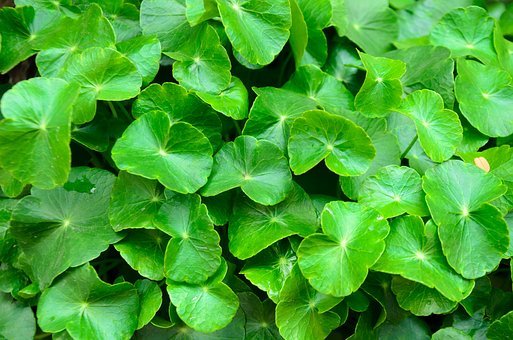What are the best herbal remedies for Alzheimer’s disease?
Alzheimer’s disease, a devastating neurological condition, impacts millions worldwide, posing significant challenges to patients, caregivers, and healthcare systems. In this comprehensive exploration, we aim to shed light on the multifaceted nature of Alzheimer’s, from its insidious onset to the promising avenues of Ayurvedic intervention.
Understanding Alzheimer’s Disease:
Alzheimer’s disease manifests as a progressive neurodegenerative disorder, characterized by the accumulation of amyloid plaques and tau protein tangles in the brain. These pathological changes lead to the gradual deterioration of cognitive functions, including memory, reasoning, and communication skills. While age remains the most significant risk factor, genetic predispositions, lifestyle factors, and environmental influences also play crucial roles in disease development. Understanding these mechanisms is vital for early detection and targeted interventions to mitigate its impact.
Symptoms of Alzheimer’s Disease:

The symptoms of Alzheimer’s disease manifest in stages, beginning with subtle memory lapses and progressing to profound cognitive impairment. Individuals may experience difficulty recalling recent events, organizing thoughts, or completing familiar tasks. As the disease advances, behavioral changes such as agitation, confusion, and social withdrawal become more pronounced, profoundly affecting the quality of life for patients and their loved ones. Recognizing these warning signs empowers individuals to seek timely medical evaluation and access appropriate support services.
- Memory loss that disrupts daily life, especially forgetting recently learned information or important dates.
- Difficulty in planning or solving problems, such as following a familiar recipe or managing finances.
- Challenges in completing familiar tasks, such as driving to a familiar location or remembering the rules of a favorite game.
- Confusion with time or place, including losing track of dates, seasons, or the passage of time.
- New problems with speaking or writing, such as struggling to find the right word or following a conversation.
- Misplacing items and inability to retrace steps, often resulting in accusing others of theft or losing items in unusual places.
- Decreased or poor judgment, such as giving away large sums of money to telemarketers or neglecting personal hygiene.
- Withdrawal from work or social activities, preferring to isolate oneself due to changes in cognition or embarrassment over memory lapses.
- Mood and personality changes, including becoming suspicious, fearful, anxious, or easily upset without apparent cause.
Conventional Treatments and Management:
While there is currently no cure for Alzheimer’s disease, conventional treatments aim to alleviate symptoms, slow disease progression, and improve overall quality of life. Pharmacological interventions, such as cholinesterase inhibitors and memantine, target neurotransmitter imbalances in the brain to enhance cognitive function and manage behavioral symptoms. Complementary approaches, including cognitive stimulation therapies, physical exercise regimens, and dietary modifications, also play integral roles in comprehensive disease management. However, these treatments are not without limitations, underscoring the need for innovative therapeutic modalities.
1. Home Remedies
Ayurvedic practitioners often prescribe specific herbs and herbal formulations to support cognitive function and manage symptoms of Alzheimer’s Disease. Some commonly used herbs include:

- Brahmi (Bacopa monnieri): Known for its memory-enhancing properties, Brahmi is believed to improve cognitive function, concentration, and mental clarity.
- Ashwagandha (Withania somnifera): An adaptogenic herb, Ashwagandha helps alleviate stress, anxiety, and depression while promoting overall mental well-being.
- Shankhpushpi (Convolvulus pluricaulis): Shankhpushpi is used to enhance memory, improve learning ability, and support overall brain health.
- Jyotishmati (Celastrus paniculatus): This herb is believed to improve cognitive function, enhance learning and memory retention, and support overall brain health.
2. Dietary Modifications:

Ayurveda emphasizes the importance of maintaining a balanced diet to support overall health and well-being, including cognitive function. Ayurvedic dietary principles recommend consuming fresh, organic foods that are nourishing and easy to digest. Incorporating brain-boosting foods such as nuts, seeds, fruits, vegetables, whole grains, and healthy fats like ghee and coconut oil can help support cognitive function.
3. Lifestyle Practices:

Ayurveda places great emphasis on lifestyle practices that promote mental, physical, and emotional balance. Practices such as yoga, meditation, pranayama (breathwork), and daily routines (dinacharya) can help reduce stress, improve concentration, and enhance overall well-being. Adequate rest, regular exercise, and maintaining healthy sleep patterns are also essential for supporting brain health.
4. Panchakarma Therapy:

Panchakarma is a detoxification and rejuvenation therapy used in Ayurveda to cleanse the body of accumulated toxins (ama) and restore balance to the doshas. Panchakarma treatments, such as basti (enema therapy), nasya (nasal administration of herbal oils), and shirodhara (pouring of warm oil on the forehead), may be recommended to support cognitive health and overall well-being in individuals with Alzheimer’s Disease.
5. Stress Management Techniques:

Chronic stress can exacerbate symptoms of Alzheimer’s Disease and negatively impact cognitive function. Ayurveda offers various stress management techniques, such as herbal remedies, meditation, yoga, and relaxation techniques, to help individuals cope with stress and promote mental clarity.
Ayurvedic Approach to Alzheimer’s Disease:
In contrast to conventional medicine’s symptom-focused approach, Ayurveda offers a holistic perspective on Alzheimer’s disease, addressing the root causes of imbalance within the body and mind. According to Ayurvedic principles, Alzheimer’s arises from disturbances in the delicate interplay of the three doshas—Vata, Pitta, and Kapha—and the seven dhatus, or bodily tissues. Imbalances in these fundamental elements disrupt cognitive function, leading to symptoms associated with Alzheimer’s. By restoring harmony through personalized lifestyle modifications, dietary interventions, and herbal remedies, Ayurveda seeks to rejuvenate the mind and support cognitive vitality.
Ayurvedic Herbs for Cognitive Support:
Ayurvedic pharmacology encompasses a rich array of herbs and formulations revered for their cognitive-enhancing properties. Brahmi (Bacopa monnieri), known as the “herb of grace,” is renowned for its ability to enhance memory, concentration, and learning capacity. Ashwagandha (Withania somnifera), an adaptogenic herb, combats stress and promotes mental clarity, while Shankhpushpi (Convolvulus pluricaulis) nurtures the nervous system, enhancing cognitive function and overall well-being. Integrating these potent botanicals into daily routines can provide holistic support for individuals navigating the challenges of Alzheimer’s disease, fostering resilience and vitality in mind, body, and spirit.
Conclusion:
Alzheimer’s disease presents complex challenges that demand multifaceted solutions. By embracing a holistic approach that combines conventional therapies with time-tested Ayurvedic interventions, we can empower individuals affected by Alzheimer’s to navigate their journey with resilience, dignity, and hope. Together, let us forge a path toward greater understanding, compassion, and transformative healing in the realm of Alzheimer’s care.
If you have any queries related to medical health, consult Subhash Goyal or his team members on this given no +91 99150 72372, +91 99150 99575, +918283060000





